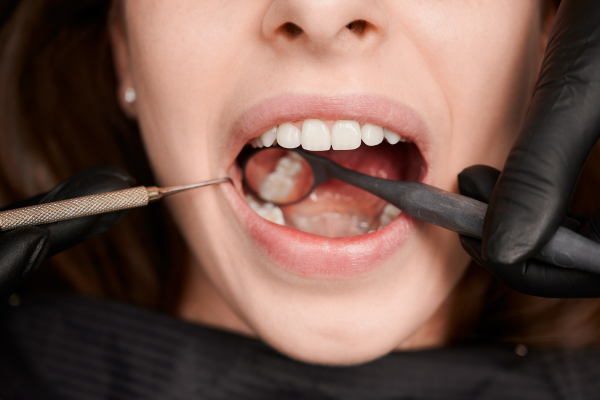When you invest in your smile, you want to know that it will last. Dental implants are often called the next best thing to natural teeth—but how long can you truly expect them to last? If you’re considering implants or already have one, understanding their longevity and how to care for them properly can make all the difference between a short-term fix and a long-lasting solution.
What influences the lifespan of a dental implant?
A dental implant isn’t a single piece—it’s a combination of three components:
- The implant post, usually made of titanium, inserted into the jawbone
- The abutment, which connects the post to the crown
- The crown or prosthesis, which is the visible, tooth-like restoration
Each component has its own lifespan, but when we talk about how long a dental implant lasts, we’re often referring to the implant post.
Implants can last 20 years or more—in many cases, even a lifetime. However, this depends on a few key factors:
- Quality of oral hygiene
- The skill of the implant placement
- Bone health and density
- Patient lifestyle habits
- General health conditions (e.g., diabetes, osteoporosis)
How long do each of the implant components last?
Not all parts of the implant system have the same durability. Here’s a breakdown:
Lifespan of Dental Implant Components
| Component | Expected Lifespan | Remarks |
| Titanium implant (post) | 20+ years or lifelong | Integrates with jawbone; rarely replaced if cared for well |
| Abutment | 10–15 years | Subject to wear and tear; may loosen or need replacement |
| Crown or bridge | 10–15 years | Can chip or wear from chewing forces, particularly in bruxism cases |
| Implant-supported denture | 10–15 years | May require reline, adjustment, or replacement due to long-term use |
Why is oral hygiene so critical to implant longevity?
Unlike natural teeth, dental implants don’t get cavities—but they’re still vulnerable to gum disease, particularly a condition called peri-implantitis. This is an inflammatory process that affects the soft and hard tissues surrounding an implant, often leading to bone loss and implant failure if untreated.
Good oral hygiene helps prevent these issues. That includes:
- Brushing twice a day with a soft toothbrush
- Using interdental brushes or floss designed for implants
- Rinsing with an alcohol-free mouthwash (if advised by your dentist)
- Attending regular dental check-ups and professional cleans
What lifestyle habits affect how long dental implants last?
Daily behaviours can either support or undermine your implant’s health. The following habits can reduce the lifespan of your dental implant:
- Smoking: Reduces blood flow to gums and impairs healing
- Teeth grinding (bruxism): Can place excess pressure on the implant crown
- Poor diet: High sugar intake or chewing hard foods (like ice or nuts) can damage the crown
- Skipping dental appointments: Allows small issues to go undetected and worsen over time
How does bone health contribute to implant success?
Bone loss in the jaw is a common reason for implant failure. For an implant to remain secure, it needs a strong and stable foundation—your jawbone. If the bone is too thin or soft, a bone graft may be recommended before the implant is placed.
Over time, maintaining bone density is essential. Regular stimulation of the jaw through chewing, especially with fixed implants, helps keep the bone healthy—unlike traditional dentures, which can accelerate bone resorption.
What are common signs an implant may be failing?
Although implant success rates are high, failures can occur. Recognising the signs early increases the chances of saving the implant. Watch for:
- Persistent pain or discomfort after the healing period
- Swelling or bleeding gums near the implant site
- A loose or wobbly implant or crown
- Difficulty chewing on one side
- Receding gum around the implant
If you experience any of these symptoms, schedule an appointment as soon as possible.
Can dental implants really last a lifetime?
The short answer: yes, they can. The implant post itself has no set expiration if the surrounding bone and gum remain healthy. However, the visible crown or denture will likely need replacing at some point due to normal wear.
In other words, implants are a long-term solution—not a lifetime maintenance-free one. But with the right care, they can offer decades of functionality and aesthetics.
What can I do to extend the life of my implant?
Here’s a simple checklist for implant longevity:
- Maintain excellent daily oral hygiene
- Use tools designed for cleaning around implants
- Avoid smoking or using tobacco
- Wear a nightguard if you grind your teeth
- Stick to regular dental check-ups and hygiene visits
- Choose a trusted, experienced dental provider
Why choose Terrigal Beach Dental + Implant Centre for your implant care?
At Terrigal Beach Dental + Implant Centre, we don’t just place implants—we focus on keeping them healthy for life. Whether you’re exploring single implants, full-arch restorations, or upgrading from a denture, we provide carefully tailored treatment backed by years of experience and digital precision planning.
Our approach combines:
- High-grade materials for durable, biocompatible results
- Individualised aftercare to monitor and maintain the integrity of your implant
- A warm, professional environment where your comfort and long-term results are prioritised
We are proud to help Central Coast locals restore their smiles with confidence, knowing their implant journey is in expert hands. If you’re seeking a long-term solution with proper guidance and ongoing support, we invite you to book a consultation today.
References
- Australian Dental Association. “Dental Implants – FAQs.” https://www.ada.org.au
- Healthdirect Australia. “Dental Implants.” https://www.healthdirect.gov.au/dental-implants
- Better Health Channel (Vic Gov). “Dental implant surgery.” https://www.betterhealth.vic.gov.au/health/conditionsandtreatments/dental-implant-surgery
- Oral Health CRC – University of Melbourne. “Peri-implant diseases and their prevention.” https://www.oralhealthcrc.org.au
Frequently Asked Questions
1. How long do dental implants last on average?
The titanium post can last over 20 years, often a lifetime, with proper care. The crown or denture typically lasts 10–15 years.
2. Do implants need to be replaced like fillings or crowns?
The implant post rarely needs replacing, but the crown or bridge may need to be updated over time due to wear.
3. Can smoking cause dental implant failure?
Yes. Smoking impairs healing and significantly increases the risk of peri-implantitis and implant failure.
4. What’s the success rate of dental implants?
In Australia, the success rate is typically above 95% over 10 years when performed by trained professionals with proper follow-up care.
5. How do I clean my dental implant?
Use a soft-bristled toothbrush, floss or interdental brushes, and consider water flossers for hard-to-reach areas. Regular dental cleans are essential.
6. Are dental implants better than bridges or dentures?
Implants provide a more natural feel, preserve bone, and do not affect neighbouring teeth—making them a superior long-term option for many people.






